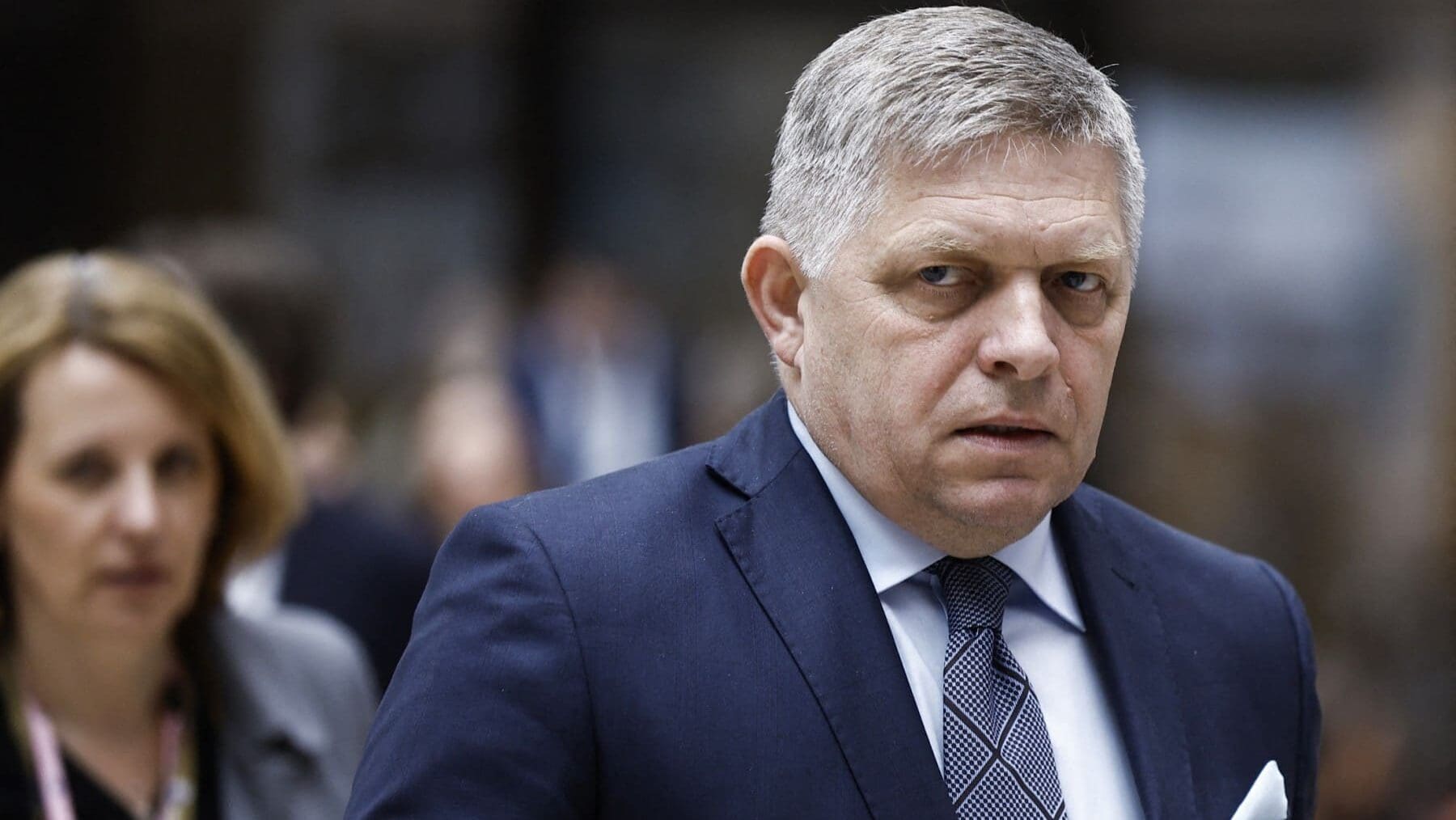
Slovakia’s Prime Minister Robert Fico
Photo: KENZO TRIBOUILLARD / AFP
The European Commission threatened Slovakia’s sovereigntist government with legal action (an ‘Infringement Procedure’) if Bratislava goes ahead with its planned legislation requiring foreign-funded non-governmental organizations to label themselves as such. This, as Brussels has been crafting its own ‘foreign agents law’ for nearly two years now.
“I was in Bratislava and I was very clear,” EU Commission Vice-President Věra Jourová said on Wednesday, July 24th, when unveiling the EU’s annual Rule of Law Report which once again unsurprisingly singled out Hungary and Slovakia as the greatest offenders.
“If you follow the Hungarian example on the NGOs law, we will launch an infringement procedure [for violating EU law] immediately, because already we have the decision of the court on the table,” she said.
In a statement, Slovak PM Robert Fico replied by saying that the only reason Brussels has put Slovakia in its crosshairs was “the sovereign stance of the current government on many essential foreign-political issues, where the European Commission expects absolute obedience from EU member states.”
By initiating an ‘infringement procedure,’ the Commission can impose certain punitive actions against an EU member state, including withholding public funds (as it did in the case of Poland and Hungary) and even suspending certain membership rights, such as the right to vote (and therefore veto) in the European Council.
While the suspension of funds has only been exercised against national conservative governments in the past—with the apparent double standard contributing to frequent criticisms of ‘ideological blackmail’—partially suspending membership rights has never been done before, for fear of creating a dangerous precedent.
By invoking the “Hungarian example,” Jourová was referring to a similar legislation that the Hungarian parliament passed back in December 2023 in response to a widespread foreign interference scandal during the 2022 general elections. Brussels strongly condemned the law and accused Budapest of trying to crack down on civil society in an undemocratic abuse of power, but was immediately called out for its hypocrisy relating to its own so-called ‘foreign agents law.’
The European Commission’s “Defense of Democracy” package has been in the works for nearly two years since President von der Leyen first proposed it in September 2022, and has been the subject of much controversy in Brussels. The Commission finalized its version of the law in December last year, and now it awaits the deliberation of the Parliament and Council to become binding.
The proposed instruments within the package, aiming to “reinforce democracy and [the] integrity of elections,” include the creation of a public registry for NGOs with at least 20% non-European funding in order to keep track of potential political advertising disguised as other types of benevolent or harmless activity. While it’s intended to screen out mostly Russian and Chinese influence, it has mostly panicked US-funded Western NGOs that have been protesting the law in Brussels.
In other words, it is very similar to the Hungarian, as well as the planned Slovak legislation, with a few minor differences—the major one being the governments themselves. What is allowed for the European Commission is not allowed for sovereigntist governments—because they might use it to prevent political interference from Brussels.
It is also ironic that such threats are coming from Jourová, who is the EU Commissioner for Values and Transparency while being one the least transparent members of the College, perhaps second only to von der Leyen herself.For instance, there are many indications that Jourová’s December trip to Ljubljana heavily contributed to the Slovene progressive government’s unconstitutional purge of conservatives from the country’s public broadcaster and the crackdown on nearly all remaining conservative media outlets. Yet, despite pressure from the European Ombudsman, the commissioner still refuses to disclose the relevant documents that could implicate her in this purge.
